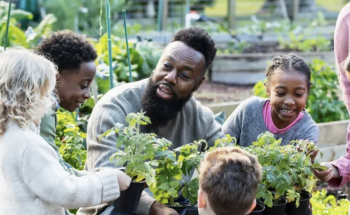
Storytelling In English Teaching/Learning
The 'Storytelling in English Teaching/Learning' course, part of Erasmus training, harnesses storytelling's power in language education. Tailored for educators, it explores storytelling's art, from traditional to digital methods, enhancing language lessons. Empower students to share stories, fostering language skills and cultural understanding. Elevate teaching with storytelling's timeless magic.
Description
Day 1: Introduction to Storytelling in Language Education
- Understanding storytelling in language learning.
- Exploring its history, evolution, and psychological impact.
- Introduction to various storytelling techniques.
- Interactive session: Sharing personal storytelling experiences.
Day 2: Selecting and Adapting Stories for Education
- Criteria for stories based on age and proficiency.
- Adapting stories for language learning objectives.
- Workshop on transforming tales into language lessons.
- Group activity: Adapting a story for a classroom setting.
Day 3: Developing Language Skills Through Stories
- Using storytelling for vocabulary and grammar.
- Teaching pronunciation and intonation through stories.
- Role-playing and integrating storytelling in language skills.
- Creating reading and writing activities based on stories.
Day 4: Interactive Storytelling Methods
- Workshop on digital storytelling tools.
- Implementing role-play and drama.
- Using visual aids for storytelling.
- Group project: Creating an interactive storytelling session.
Day 5: Fostering Creativity and Expression
- Encouraging students to create their own stories.
- Integrating creative writing into lessons.
- Storytelling for personal expression.
- Activities to develop students’ storytelling skills.
Day 6: Storytelling Across the Curriculum
- Integrating storytelling in other subjects.
- Collaborative projects linking stories with disciplines.
- Developing lesson plans with storytelling.
- Case studies of successful storytelling integration.
Day 7: Assessment and Reflection in Storytelling
- Assessing language development through storytelling.
- Reflective practices for teachers and students.
- Sharing experiences and lessons learned.
- Developing a personal action plan for storytelling.
- Group discussion on continuous development in education.
Learning objectives
COURSE OBJECTIVES:
- Master Storytelling Fundamentals: Educators will gain a deep understanding of the art of storytelling, its history, and its role in language teaching.
- Select and Adapt Stories: Participants will learn how to choose appropriate stories for different age groups and proficiency levels and adapt them for educational purposes.
- Enhance Language Skills through Stories: The course will focus on using storytelling to enhance various language skills, including vocabulary, grammar, and pronunciation.
- Develop Interactive Storytelling Techniques: Educators will explore interactive storytelling methods, including digital storytelling, role-playing, and the use of visual aids.
- Promote Cultural Understanding: Participants will learn to use storytelling to introduce students to diverse cultures and global perspectives.
- Foster Student Creativity and Expression: The course aims to equip teachers with strategies to encourage students to create and tell their own stories.
- Integrate Storytelling in Curriculum: Educators will develop skills to integrate storytelling effectively into the English language curriculum.
- Evaluate Storytelling Impact: Participants will learn how to assess the impact of storytelling on language learning and student engagement.
LEARNING OUTCOMES:
- Proficiency in Storytelling Techniques: Teachers will be proficient in various storytelling techniques and able to effectively incorporate them into English teaching.
- Effective Story Selection and Adaptation: Educators will demonstrate the ability to select and adapt stories to suit their teaching objectives and student needs.
- Enhanced Teaching of Language Skills: Participants will effectively use stories to teach and reinforce language skills in a more engaging manner.
- Skill in Interactive Storytelling: Educators will be skilled in interactive storytelling, enhancing student participation and engagement.
- Cultural Awareness in Teaching:
Methodology & assessment
Emphasis on language skill development includes using storytelling for vocabulary, grammar, pronunciation, and intonation. Interactive methods, digital tools, and visual aids are explored in workshops and group projects, enhancing participants' ability to integrate these techniques into language lessons effectively.
Creativity and expression are fostered through techniques encouraging student storytelling and creative writing. The course also delves into cross-curricular integration, collaborative projects, and the development of lesson plans incorporating storytelling across disciplines. Case studies highlight successful integration strategies.
Assessment strategies are explored, focusing on language development, reflective practices, and continuous improvement. The course concludes with participants developing a personal action plan, reflecting on experiences, and engaging in group discussions on continuous development in educational practices.
Certification details
CERTIFICATE OF PARTICIPATION & EUROPASS MOBILITY DOCUMENT
Pricing, packages and other information
-
Price:80Euro
Additional information
-
Language:English
-
Target audience ISCED:Primary education (ISCED 1)Lower secondary education (ISCED 2)Upper secondary education (ISCED 3)
-
Target audience type:TeacherHead Teacher / PrincipalNot-for-profit / NGO staff
-
Learning time:25 hours or more
Past sessions
More courses by this organiser

Integrative Strategies In Digital & Technical Entrepreneurship

Integrative Techniques For Environmental Education


